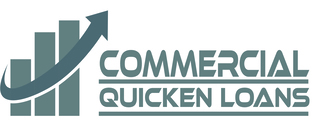Commercial Loans for Residential Properties
Commercial real estate loans help you cover business expenses to develop a healthy cash flow from your real estate purchases. Here’s what you need to know about this common commercial financing option.
What is a commercial real estate loan?
A commercial real estate loan is a debt-based funding arrangement where you borrow money for income-producing properties. As with residential loans, a commercial mortgage is a contract between a lender who pays the property upfront and a borrower who repays the loan in regular installments with interest.
Business Loans for Investment Properties
The term “commercial loan” is rather vague. Though often associated with a large commercial purchase, such as an office building, it could also mean a land purchase or even equipment financing. Let’s take a closer look at the types of commercial real estate loans as well as the types of properties.
What is commercial real estate?
Commercial real estate is defined as income-producing properties. On the one hand, there is a rental property, which produces income through monthly payments by tenants. On the other is commercial property, like office buildings or restaurants, used to produce profit through their business activities.
Types of Commercial Real Estate Loans
Simply put, a commercial real estate loan is a transaction between a lender and a company. These loans come in many shapes and sizes including:
Conventional Commercial Loans
A conventional commercial real estate loan is a fixed-rate mortgage loan typically originated by a large bank. If you also use the investment as a primary residence, you may be eligible for Federal Housing Administration (FHA) loans.
Hard Money Loans
Hard money loans are short-term loans usually originated by private companies. These loans have higher interest rates than traditional loans, yet a simpler application process.
Small Balance Commercial Loans
SBC Loans are commercial property loans designed for smaller commercial real estate transactions. Compared to traditional mortgage loans, these loans offer flexible terms and simpler underwriting requirements. They come in many shapes and sizes, but typically you will see Bank Statement, Light Documentation, and Full Documentation loan programs.
Commercial Bridge Loans
A commercial bridge loan is a short-term loan that can be used as a "bridge" until an investor secures permanent financing or is able to pay off the loan in full.
Small Business Administration Loans
A conventional commercial real estate loan is a fixed-rate mortgage loan typically originated by a large bank. If you also use the investment as a primary residence, you may be eligible for Federal Housing Administration (FHA) loans.
Non-QM Investor Loans
A non-QM mortgage is a mortgage that fits outside the rules of a qualifying mortgage. This covers many buckets, but in this case we are referring to an investor loan such as Visio’s Rental360 Loan Program. Essentially, these loans are commercial loans for residential properties.

Types of Commercial Property
An SBC Loan would finance the commercial property examples outlined below.
Multi-family
Multifamily properties consist of five or more residential rental units. One example would be a residential high-rise building.
Mixed-Use
This type of property contains a mix of commercial and residential units. For example, this can be an apartment complex with office space on the ground floor.
Flex Space
A flex space is typically a warehouse with a small office and retail component. Tenants interested in flex spaces may include ecommerce, logistics, or construction companies. The essence of flex space is that it’s adaptable and easy to reconfigure.
Office
Some examples are suburban office buildings or buildings in the central business district. Most SBC lenders require the office space to have multiple tenants.
Light Industrial
Light industrial properties can attract tenants such as companies that produce food or fast-moving consumer goods. Just like with office space, most SBC lenders require multiple tenants.
Retail
Most lenders will shy away from single tenant buildings due to the risk associated with the loss of the tenant (of course this excludes the situation with a credit tenant triple net lease).
Comparing Residential Loans for Rental Properties and Commercial Mortgages
At its core, a single-family rental (SFR) loan is an investor loan secured by a residential asset. Similarly, an SBC loan is an investment property loan secured by a commercial asset. Let’s take a look at some other similarities and differences.
Underwriting for Commercial Real Estate Financing vs. Residential Mortgage Financing for Investment Properties
Private lenders typically look primarily at the cash flow for residential and commercial mortgages. While good credit is highly important, the key factor is having a Debt-Service Coverage Ratio (DSCR) that demonstrates the borrower's ability to repay the loan. Commercial real estate loans simply have more complexity than residential mortgages.
For example, for commercial properties, the underwriter will be looking at several leases instead of one. It is very hard to gauge the financial track record of commercial tenants, so lenders will review the lease history instead.
When working with traditional lenders instead of private lenders, commercial real estate loans become even more nuanced. Banks require far higher reserves and far more documentation.
Documents Needed for Commercial Real Estate Loans vs. SFR Rental Loans
Both types of properties require basic loan documents, including a personal guarantee, lease documentation, and entity documents. A commercial loan will require further documentation, depending on the type of property. Examples include tenant estoppels, non-disturbance agreements, or lockbox agreements.
Commercial Real Estate Loan Requirements
Before investigating commercial real estate loans, you must identify which type of real estate you’d like to purchase, as this will impact what kind of loan you pursue. For investment properties, a DSCR loan is a better choice than other commercial lending options, as it offers a fast loan approval process, minimal personal finance investigation, less stringent loan requirements, and commonsense lending stipulations.
Credit Score
Most commercial lenders, including Visio Lending, require a credit score of at least 680, but this can vary depending on the lender's stipulations. Generally, higher credit scores provide you with better rates. The better your score, the closer your actual interest rate will be to the prime rate that is afforded to the most well-qualified borrower.
One of the benefits of pursuing a DSCR loan is that there is less investigation into your credit history before credit approval, which makes it easier for self-employed borrowers than the traditional lender route. DSCR loans are also good for limited partnerships because, unlike most loans, you can borrow as a business entity rather than an individual.
Down Payment
For commercial real estate loans, you want a loan-to-value ratio of 80% or lower, which means that you will need to provide a down payment of at least 20%. Visio Lending will accept an LTV of up to 80%.
Property Value and Loan Amount
Typically, the minimum property value is $150,000. When it comes to the loan amount, the smallest commercial loan you can generally access is $75,000. The maximum loan amount will depend on the property's type, estimated cash flow, the LTV, and other requirements.
How To Apply For A Commercial Real Estate Loan
When you rely on Commercial Quick Loans for a commercial loan, you benefit from a streamlined process, competitive interest rates, and commonsense borrowing protocols that let you expand your portfolio quickly. Here’s a quick overview of what you can expect when you choose us as your commercial real estate loan lender.
Establish Your Eligibility for a Commercial Loan
As you begin the process for a commercial loan, take stock of your financial situation, such as your credit score, cash reserves, and monthly cash flow, to identify how much you can afford.
Utilizing our mortgage calculator based on current rates and the loan amount you're considering, you can see if you're heading in the right direction in regard to monthly payment sizes. Be sure to factor in closing costs and the down payment when considering your upfront costs. This will help you see how much you can afford, which will help you narrow down your real estate options.
Set Goals
Now that you know the loan amount you can access, it's time to review existing buildings that might meet your needs. Work with a qualified commercial real estate agent to find properties that fit your specifications based on size, location, and rental income, then use our rental income calculators to ascertain how lucrative your options are. You can also use Commercial Quick Loans DSCR calculator, which will give you a simple ratio that shows how well the property will cover its debts, such as mortgage payments and maintenance. These tools are a critical part of the exploration process before you approach lenders.
Start the Application Process
When you've identified a good property and ascertained your creditworthiness for a loan, you can begin preparing your documentation. For a DSCR loan, you don't need personal finance information like tax returns, pay stubs, or bank statements: all we require in terms of your own financial circumstances is your credit score.
Most of the documentation a business needs to get a DSCR loan is related to the property, such as lease agreements and an appraisal, which shows whether it is making enough money to finance the loan. You can review all the documentation we need on our FAQ.
You'll then complete the application and submit the necessary documentation. Our process is fast: you can get approval in 21 days or less, which helps you stay competitive in the market. In the meantime, you should carefully review all the loan terms, particularly regarding the amortization period.
Unlike home mortgages, DSCR loans have prepayment penalties: this means that if you pay the loan early, you will need to pay a percentage of the loan amount in addition to your payment. This ensures the lender can recoup the loss of profit they would have made from the interest rate on your payments.
